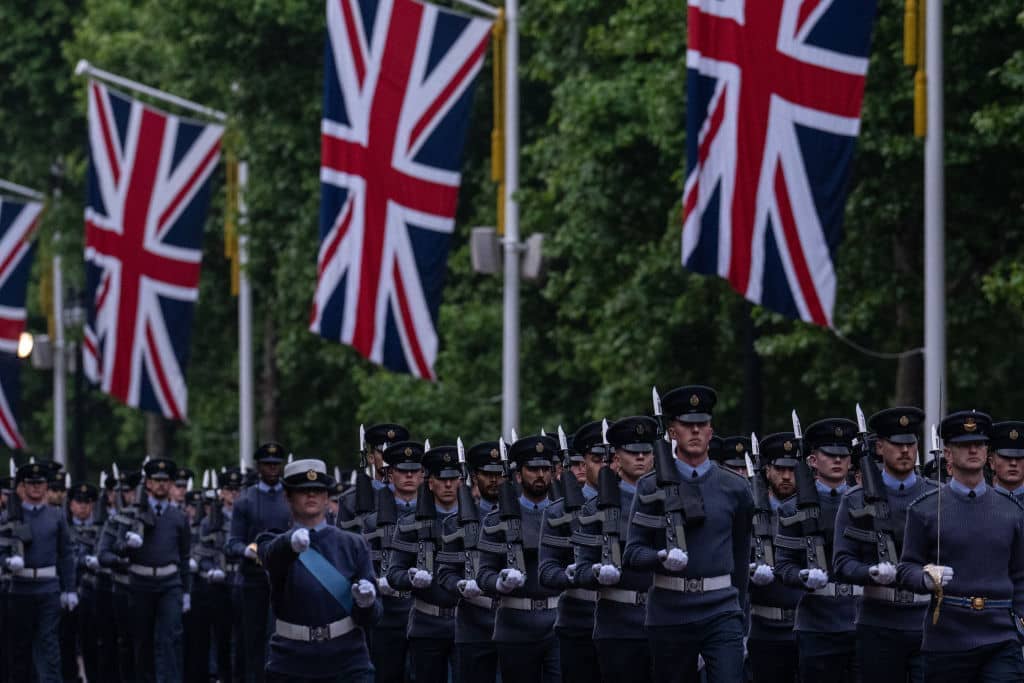This week’s news that the Royal Air Force is reviewing its recruitment policies is causing quite a stir. In an astounding revelation, it emerged that all white male recruit applications are effectively to be put on pause to allow for a dramatic increase in ethnic minority and female hires.
There are many, many troubling issues with this. Legality for one. There is a crucial distinction between two important definitions: positive action, defined as measures to encourage minority candidates, and positive discrimination, which includes measures to force ethnic diversity through discriminating in favour of ethnic minority individuals. The latter is illegal under the Equality Act 2010, which safeguards the protected characteristics of sex and race under unfair employment policies (namely, employing one characteristic favourably over another).
The military is only allowed dispensation to ‘age’ and ‘disability’ protected characteristics as these are considered essential to the role and expected tasks. Breaching ‘race’ and ‘gender’ in order to increase recruitment statistics of minority groups directly violates the Equality Act 2010 – there is no legal precedent for this other than all-women shortlists for political parties.
This policy will leave the RAF woefully short of trained pilots for the wars of tomorrow already brimming on the horizon
Public institutions across Britain have already been subjected to the rot that is the culture of victimhood, steeped in legacy claims of a misogynistic patriarchy, which simply are no longer true. This is but the latest in a systemic campaign by senior public figures attempting to create an agenda of political correctness to absolve institutions of wrongdoings decades prior.
This was witnessed most recently in 2021. In the wake of the Black Lives Matter movement and the US police killing of George Floyd, a Home Affairs Select Committee report recommended that the Met Police promote black and ethnic minority officers over colleagues of other backgrounds.
This culture of victimhood emphasises group identity over individual personality. The result has been a reversal of the long-held liberal ideal central to moral and political progress for hundreds of years: that we judge one another according to the intrinsic practices we are able to change, and not the characteristics that we are born with – now thankfully protected under discriminatory law.
The RAF is dangerously close to breaking this, if not having done so already. The real tragedy is that, in the words of the female officer in charge of this policy, it is not even ‘ashamed’ of the proposed policy.
That the RAF, the people in charge of its recruitment, and the Ministry of Defence in general, would support – even be proud – of such a damaging policy would be absolutely catastrophic to Britain’s defence. Despite the RAF being the first service to open all trades to women, the majority of pilots are still white males. This highlights that while a government can strive for equality of opportunity as far as possible (something to be applauded), for complex societal reasons humans will still naturally gravitate towards certain trades over others.
The training pipeline for fast jet pilots is roughly nine years before flying operationally. By discriminating against white males for such a long-term capability as this, the RAF will be left woefully short of trained pilots for the wars of tomorrow already brimming on the horizon. At a time when China is militarising faster than the United States, and Putin wages war in Europe there is a very good chance there simply won’t be enough candidates to fill the positions – a clear example of how attempts to force equality of outcome on a society can actively endanger it.
Both Rishi Sunak and Sajid Javid have publicly stated this week that this is a dangerous policy. Yet the Ministry of Defence and RAF press forward, claiming pride in such a discriminating and dangerous policy and leaving combat effectiveness in the dust.






Comments